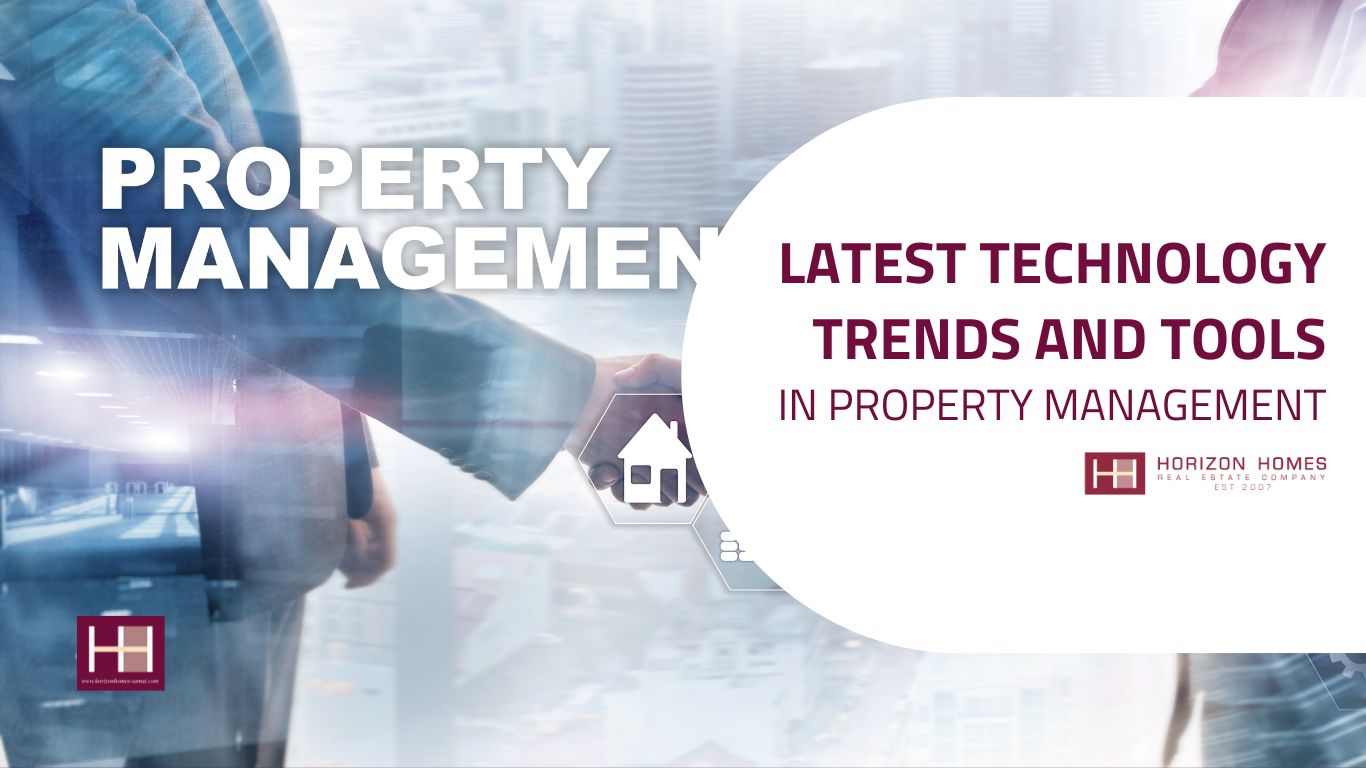A Quick Overview of the Latest Technology Trends and Tools
| Technology Trend | Benefits |
| Artificial Intelligence (AI) and Machine Learning | Enhances decision-making, automates customer support, improves tenant screening, and predicts property trends. |
| Internet of Things (IoT) and Smart Building Systems | Lowers utility costs, prevents equipment failures, increases security, and enables remote control. |
| Cloud-Based Property Management Software | Centralizes data access, streamlines workflows, improves productivity, and easily scales with portfolio growth. |
| Data Analytics for Informed Decision-Making | Enables data-driven decisions, optimizes maintenance costs, and improves tenant satisfaction with personalized services. |
| Blockchain for Lease and Payment Security | Increases transparency, ensures secure transactions, reduces fraud, and expedites lease and payment processes. |
| Virtual and Augmented Reality (VR/AR) | Makes property tours accessible, improves maintenance efficiency, and enhances property visualization and appeal. |
| Mobile Applications for On-the-Go Management | Facilitates tenant communication, simplifies maintenance tracking, and enables digital document management. |
| Automated Marketing and Leasing Platforms | Increases visibility, speeds up leasing processes, and improves tenant conversion rates. |
| Drones for Property Surveillance and Inspection | Enhances security, allows for easier inspections, and provides unique marketing visuals. |
| Remote Work and Collaboration Tools | Strengthens team connectivity, improves task tracking, and enables efficient file sharing for remote teams. |
| Energy Management Systems | Reduces energy costs, supports sustainable practices, and attracts environmentally conscious tenants. |
| Tenant Experience Platforms | Enhances tenant satisfaction, promotes community engagement, and improves amenity access. |
| Cybersecurity Solutions for Data Protection | Protects sensitive information, prevents data breaches, and ensures compliance with data security regulations. |
| Digital Payment Solutions | Streamlines rent collection, reduces late payments, and provides flexible payment options for tenants. |
| Legal Compliance Software | Ensures adherence to regulations, reduces compliance risks, and automates record-keeping and reporting. |
1. Artificial Intelligence (AI) and Machine Learning
AI and machine learning have made huge strides in property management by optimizing data processing and customer service.
- Predictive Analytics: AI analyzes historical data to predict future property trends, such as maintenance needs, tenant turnover rates, and rent adjustments.
- Chatbots and Virtual Assistants: AI-driven bots handle common tenant queries, freeing up time for property managers to focus on more complex tasks.
- Tenant Screening: AI-powered tools evaluate potential tenants by analyzing credit scores, rental histories, and employment status for more informed leasing decisions.
2. Internet of Things (IoT) and Smart Building Systems
IoT devices are transforming property management by connecting everyday items to the internet, allowing remote control and real-time data collection.
- Smart Thermostats and Lighting: Energy-efficient controls lower utility costs and allow tenants to control temperatures remotely.
- Automated Maintenance Alerts: IoT devices on appliances and HVAC systems send alerts when performance drops, helping prevent breakdowns and costly repairs.
- Smart Security Systems: IoT-enabled security systems, including cameras and motion sensors, provide both property managers and tenants with peace of mind.
3. Cloud-Based Property Management Software
Cloud-based property management software has become the backbone of modern property management, centralizing tasks and providing easy access from anywhere.
- Centralized Data Access: Cloud-based platforms allow property managers to access tenant information, lease agreements, and maintenance records in one place.
- Automated Workflows: Tasks such as rent collection, invoicing, and tenant communication can be streamlined, improving overall productivity.
- Scalability: Cloud solutions easily scale to accommodate growing property portfolios without requiring significant infrastructure investment.
4. Data Analytics for Informed Decision-Making
Data analytics help property managers make data-driven decisions that improve efficiency and enhance tenant satisfaction.
- Market Analysis: Data tools track local market trends, informing rent pricing and occupancy strategies.
- Operational Insights: Analytics provide insights into maintenance costs, allowing managers to make more cost-effective decisions.
- Tenant Behavior Tracking: Data on tenant behavior and preferences enables personalized services, such as targeted amenity offerings or lease renewals.
5. Blockchain for Lease and Payment Security
Blockchain is increasingly being applied to property management to enhance the security and transparency of transactions.
- Smart Contracts: Blockchain-enabled smart contracts automate lease agreements, ensuring they are tamper-proof and enforceable without intermediaries.
- Secure Payment Systems: Blockchain-based payment solutions provide a secure and transparent way to manage rent payments, reducing fraud.
- Title and Ownership Records: Blockchain can also store title and ownership records, reducing disputes and expediting the transaction process.
6. Virtual and Augmented Reality (VR/AR)
VR and AR are changing how property managers showcase properties and conduct inspections.
- Virtual Property Tours: VR allows potential tenants to tour a property remotely, increasing accessibility and efficiency.
- Augmented Reality for Maintenance: AR overlays provide maintenance staff with real-time guidance on repairs, making them more efficient and reducing errors.
- Staging and Visualization: VR and AR allow property managers to stage and visualize space layouts, enhancing the appeal to prospective tenants.
7. Mobile Applications for On-the-Go Management
Mobile apps are essential for modern property management, offering convenience and real-time functionality.
- Tenant Communication Apps: Mobile apps streamline tenant interactions, offering chat, notifications, and rent payment options directly from a smartphone.
- Maintenance Tracking: Property managers and maintenance staff can log issues, track repairs, and receive updates through mobile apps.
- Digital Document Management: Lease agreements, inspection reports, and financial statements can be managed and signed digitally.
8. Automated Marketing and Leasing Platforms
Automated marketing platforms simplify the process of attracting and onboarding new tenants.
- Automated Listings: Property managers can automatically post vacancies to multiple listing sites, ensuring maximum visibility.
- Online Applications: Prospective tenants can apply and undergo screening online, expediting the leasing process.
- Lead Tracking and Nurturing: CRM tools track tenant inquiries, enabling personalized follow-up and conversion management.
9. Drones for Property Surveillance and Inspection
Drones have proven invaluable in property management, particularly for large complexes or remote areas.
- Aerial Surveillance: Drones provide aerial views for security monitoring, reducing trespassing and improving safety.
- Structural Inspections: Roofs, gutters, and other hard-to-access areas can be inspected easily with drones, helping detect issues before they become severe.
- Property Marketing: High-quality aerial photos and videos offer prospective tenants a unique view of the property.
10. Remote Work and Collaboration Tools
With property management teams increasingly working from various locations, remote work tools are more critical than ever.
- Team Communication Platforms: Tools like Slack, Microsoft Teams, or Zoom facilitate real-time communication, ensuring teams stay connected.
- Project Management Software: Platforms like Asana or Trello track tasks, projects, and deadlines, ensuring accountability.
- File Sharing Solutions: Cloud storage solutions such as Google Drive or Dropbox provide easy access to important documents.
11. Energy Management Systems
Energy efficiency is both a cost and environmental priority in property management, and energy management tools address these concerns effectively.
- Energy Tracking: Smart meters and sensors track energy usage, allowing property managers to make adjustments and lower costs.
- Automated Lighting and HVAC Systems: Automated systems reduce energy consumption, especially in communal areas.
- Sustainable Building Management: Tools analyze data to recommend sustainable practices, attracting environmentally conscious tenants.
12. Tenant Experience Platforms
Tenant satisfaction is critical for lease renewals and occupancy rates. Tenant experience platforms enhance comfort, convenience, and engagement.
- Community Portals: These platforms host community events, local business promotions, and networking opportunities.
- Amenity Booking Systems: Tenants can reserve gyms, pools, or shared spaces via the app, streamlining access to amenities.
- Feedback and Surveys: In-app surveys and feedback forms allow property managers to address tenant concerns promptly.
13. Cybersecurity Solutions for Data Protection
With increased reliance on digital tools, cybersecurity has become paramount for protecting tenant data and financial transactions.
- Data Encryption: End-to-end encryption ensures sensitive data remains secure.
- Access Control: Multifactor authentication and role-based access restrict sensitive information to authorized users only.
- Threat Monitoring: Advanced threat detection tools monitor systems for potential security breaches, ensuring rapid response.
14. Digital Payment Solutions
Digital payment systems streamline rent collection and improve transparency for both tenants and property managers.
- Automated Payment Reminders: Tenants receive automated reminders, reducing late payments.
- Multiple Payment Options: Digital solutions offer flexibility, allowing tenants to pay via credit card, debit, or bank transfers.
- Ledger Integration: Payments automatically sync with accounting systems, simplifying financial tracking.
15. Legal Compliance Software
Keeping up with regulatory changes is a challenge in property management. Legal compliance software helps managers stay updated and avoid penalties.
- Automated Updates: The software alerts property managers of local and federal compliance changes.
- Record Keeping and Reporting: Automated reporting tools ensure compliance with fair housing laws and environmental regulations.
- Lease Agreement Compliance: Digital tools ensure lease agreements adhere to legal standards, minimizing liability.
Conclusion
The property management industry is at the forefront of a technology revolution, with innovative tools and trends reshaping traditional processes. From AI and IoT to cybersecurity and tenant experience platforms, each tool brings a unique set of benefits that enhance efficiency, improve tenant satisfaction, and drive down costs.
Embracing these technologies enables property managers to stay competitive and meet the evolving needs of tenants and stakeholders.


